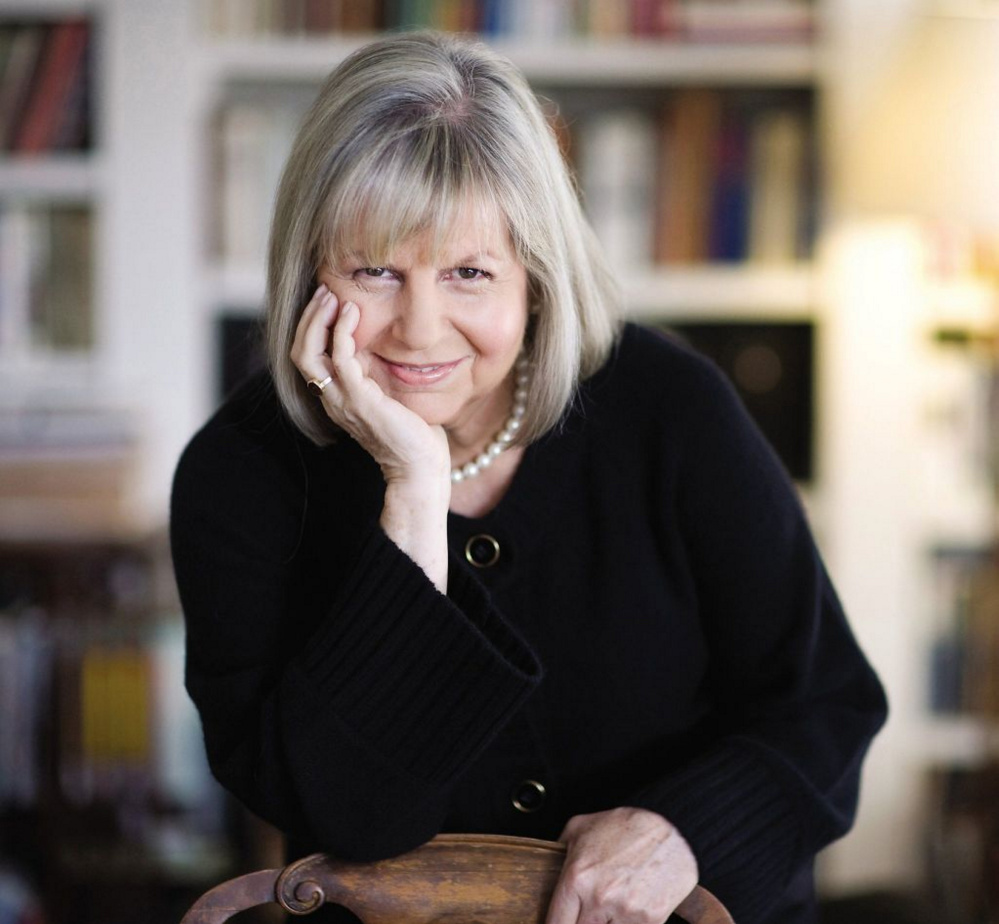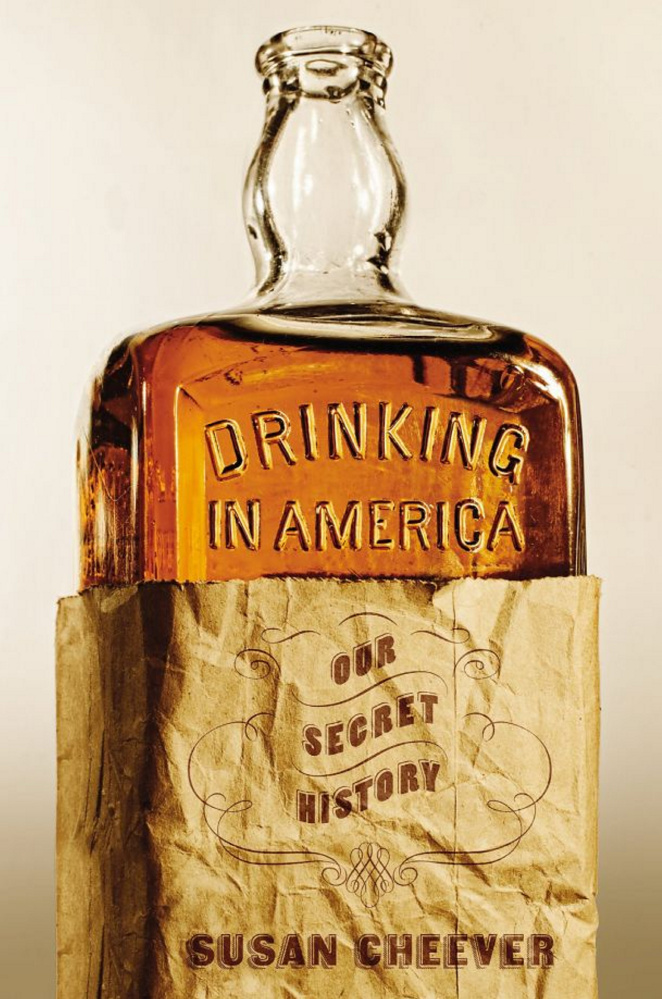“Our national character is inextricable from our drinking history,” writes Susan Cheever in her surprising and bold new book.
Cheever, an acclaimed author and biographer who teaches at Bennington College, has taken episodes from our nation’s past and examined them in a new light in “Drinking in America: Our Secret History.” Her cast of characters begins with the Pilgrims, who landed illegally on Cape Cod because they were running low on beer. She follows with a host of key American figures, among them Paul Revere, Johnny Appleseed, George Washington and Richard Nixon, each of them shaped in various ways by liquor.
Cheever, 72, is well-suited to her topic. She comes from a renowned alcoholic family – her father was author John Cheever – and she herself has been in recovery for two decades. She spoke recently about Prohibition, reading, the Wright Brothers and Donald Trump. This interview has been edited for length and clarity.
Q: Your book is so provocative and entertaining. How did you put it all together?
A: It was a strange process. I bought hundreds of books and took hundreds of books out of the library. I got very familiar with reading indexes. I spent a lot of time in the stacks of the library going, “Oh my God!” I was shocked at almost every turn. Joe McCarthy died of cirrhosis? Everything in the book had already been published, such as the Warren Commission Report. I picked 14 chapters from our history. It was like writing 14 little books.
Q: This isn’t the prettiest picture of our history. Will it ruffle some feathers, especially among historians?
A: I hope not. I hope that people will go, “Wow! I didn’t know this before.”
I sometimes have an issue with the historians we revere – the David McCulloughs and the Ken Burnses. I’m reading McCullough’s Wright Brothers book right now. What a fabulous story! It’s fascinating how these guys had to build their own wind tunnel. But his entire focus is on their invention side, their science side. Many historians leave out the stuff that interests me most – the sex, the drinking, the food, the clothes – because I am a lowlife, no question!
Q: Okay, so what did the Wright Brothers wear?
A: Well, the Wright Brothers evidently never even looked at a woman, and they lived together their entire lives. To my mind, that requires some comment. But there’s no comment. And the same with Ken Burns’ Roosevelt documentary. He just left out Eleanor’s sex life.
I like to take the pictures off the wall and make them dance. I like to make these people human. That’s what I did in my books “American Bloomsbury” and “My Name Is Bill” (about Bill Wilson, the founder of Alcoholics Anonymous). But there are always some historians who think they shouldn’t dance. History, like everything, has its fashions.
Q: You have a chapter on Senator Joe McCarthy, where you describe his bluster, bullying and lies. It sounds so much like Donald Trump.
A: It does sound like Donald Trump. Donald Trump is a classic case of a guy whose brother died of alcoholism, and that’s why he’s a teetotaler and a control freak. Donald has the impression that he controls his destiny. He fits the profile, like John Adams, of the person in the alcoholic family who is able to not drink. Nobody is pointing that out.
But we also have a strong temperance current flowing through American history, so Donald is part of an honorable tradition – Phineas Barnum, Walt Whitman, etcetera.
Q: You talk about “our drinking pendulum,” swinging between the two extremes.
A: One of the reasons I wrote this book is to say, “Let’s never forget that Prohibition does not work.” Because I think that’s where we’re going. All state governments are doing much more to control eating and drinking and smoking than they ever have before.
Q: Why do we romanticize the role of alcohol in creativity?
A: That’s one of the most interesting things I came across – that a link between writing and drinking is actually no longer with us, that’s it’s really very limited. A lot of books have been written about it, but they all have to use the same examples – O’Neill and Faulkner – because that’s all there is.
Q: You’ve been very open about your own drinking over the years. You say, “Like many women, I controlled one addiction with another.”
A: Well, I’m an addict. I’m in recovery, so I no longer have to drink. There are a lot of pleasurable things that I don’t do anymore – by the grace of God, let me say. But there are a few things that I struggle with. The Nook is one of them.
I just tried to write something about being addicted to reading. It is so bad. Let’s say, on a normal afternoon, I have an essay to write, I have to walk the dog, make dinner, maybe I have three phone calls to make. But I need a lift, right? So I reach over and pick up the Nook. And the next thing I know, it’s 3 in the morning. I’m screwed for the next day. It’s a disaster. Lately it’s been happening a lot – maybe once a week. That’s what I mean about an addiction.
This didn’t happen when I had to go to the bookstore. That’s the other thing with a Nook or Kindle. I’ll read the book review, and in three seconds, I have the book. That’s an addict’s dream! I mean, I guess I was addicted to reading earlier, but until I got the Nook, it didn’t really take off.
I grew up in a book family. I remember my father coming into my room and I would say, “I’m way too sick to go to school.” He saw the book under my covers. He said, “Okay, you don’t have to go to school.” So I come by it honestly.
Q: In the book, you say that you were dazzled by the charming stories about drinking in your family because, as a Cheever, you “had some special role to play in a universe of ordinary people.” When did that start to wear thin?
A: You know, I think it started to wear thin long before I knew it was wearing thin. Maybe when I got kicked out of prep school, like my father. I mean, I didn’t get kicked out; they just kept trying to kick me out because I always knew better than anybody. As we say in AA, I didn’t have a drink in kindergarten, but I sure could have used one.
Q: So you were a handful right out of the womb?
A: I was a handful. I was the kid at school that the teacher hoped was sick. I bounced from school to school, partly not my fault, but partly my fault. It’s very painful to be a teenager and not be able to do well in school, and not know how you could do well in school.
Q: You’ve written in several genres – fiction, memoir, biography. If you had to pick one, which would be your preference?
A: That’s like saying you could only eat one food for the rest of your life. You choose the genre by the material. I’m very drawn to memoir. We haven’t even begun to explore what memoir can do. I think it’s politically much more interesting than people realize. It has turned into a way for everyone to have a voice. Everybody gets to tell their story, whoever they are. Memoir is really our grassroots democracy.
Q: What’s coming up next for you?
A: I’m flirting with writing a book about marriage because I’ve had a few. I have some cred. And we’re the only country that decided marriage should be based on love – with interesting results, right? The truth is, I don’t know what I’m going to do next.
Q: Is there any part of not knowing that is a plus?
A: I’ve been moving very fast for 25 years, and it feels good to slow down. I’m sort of in the abyss, as Nabokov would say, and it’s not unpleasant. I find myself saying that this could be my last book. I’ve said that four or five times – until another book comes and finds me, then I’ll write it.
Joan Silverman writes op-eds, essays and book reviews. Her work has appeared in The Christian Science Monitor, Chicago Tribune and Dallas Morning News.
Send questions/comments to the editors.




Success. Please wait for the page to reload. If the page does not reload within 5 seconds, please refresh the page.
Enter your email and password to access comments.
Hi, to comment on stories you must . This profile is in addition to your subscription and website login.
Already have a commenting profile? .
Invalid username/password.
Please check your email to confirm and complete your registration.
Only subscribers are eligible to post comments. Please subscribe or login first for digital access. Here’s why.
Use the form below to reset your password. When you've submitted your account email, we will send an email with a reset code.